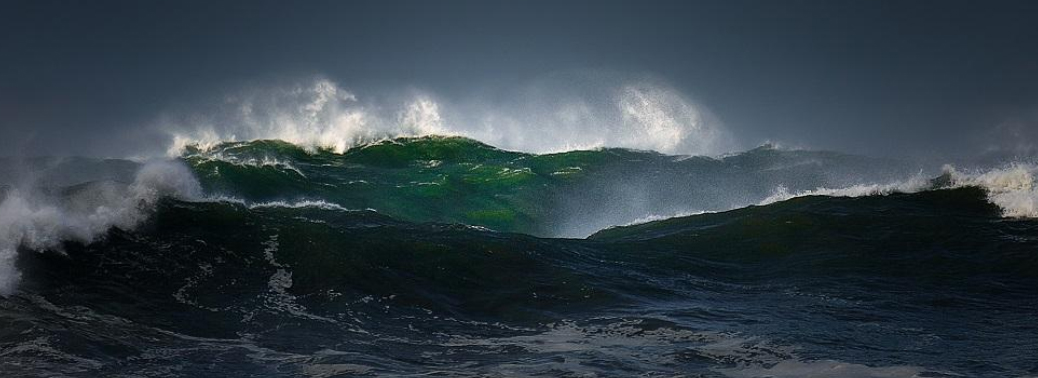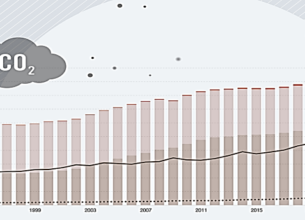ATLANTIC MERIDIONAL OVERTURNING CIRCULATION (AMOC)
21, Sep 2019

Prelims level : Geography- Climatology
Mains level : GS-I- changes in critical geographical features (including waterbodies and ice-caps) and in flora and fauna and the effects of such changes.
Why in News?
- While greenhouse warming caused by human activity is heating up the Indian oceans, it is likely to boost a key system of currents in the Atlantic Ocean that plays a key role in determining the weather across the world.
Atlantic Meridional Overturning Circulation (AMOC):
- AMOC is sometimes referred to as the “Atlantic conveyor belt”.
- It is one of the Earth’s largest water circulation systems where ocean currents move warm, salty water from the tropics to regions further north, such as western Europe and sends colder water south.
- It aids in distributing heat and energy around the earth, as the warm water it carries releases heat into the atmosphere, and in absorbing and storing atmospheric carbon
- For thousands of years, AMOC has remained stable, but since the past 15 years, it has been weakening.
- This change could have dramatic consequences for Europe and other parts of the Atlantic rim.
Impact of AMOC slowdown:
- AMOC last witnessed a slowdown 15,000 to 17,000 years ago.
- It caused harsh winters in Europe, with more storms or a drier Sahel in Africa due to the downward shift of the tropical rain belt.
- The mere possibility that the AMOC could collapse should be a strong reason for concern in an era when human activity is forcing significant changes to the Earth’s systems.
Need for delaying AMOC slowdown:
- Researchers found that rising temperatures in the Indian Ocean can help boost the AMOC and delay slow down.
- Warming in the Indian Ocean generates additional precipitation, which, in turn, draws more air from other parts of the world, including the Atlantic.
- This higher level of precipitation in the will reduce precipitation in the Atlantic and increase salinity in the waters.
- This saline water in the Atlantic, as it comes north via AMOC, will get cold much quicker than usual and sink faster, acting as a jump start for AMOC, intensifying the circulation.
Uncertainty ahead:
- Scientists don’t know for how long this enhanced warming in Indian Ocean will continue.
- If other tropical oceans’ warming, especially the Pacific’s, catches up with the Indian Ocean, the advantage for AMOC will stop.
- Moreover, it isn’t clear whether slowdown of AMOC is caused by global warming alone or it is a short-term anomaly related to natural ocean variability.








